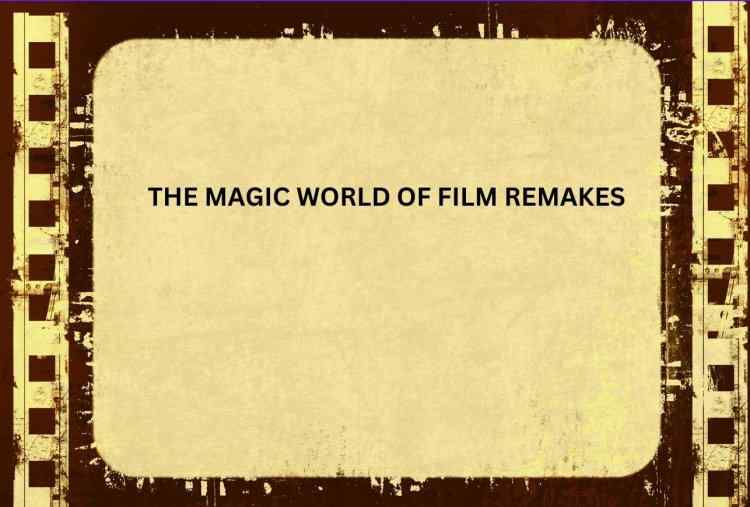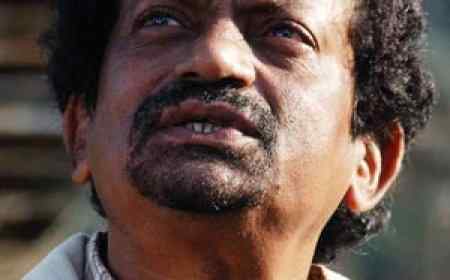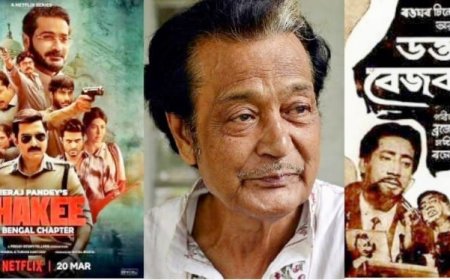THE MAGIC WORLD OF FILM REMAKES

Noted Indian film scholar, Dr. Shoma A. Chatterji writes that if cinema is all about mood and atmosphere alone, then Raincoat could be considered a good film. The blue and gray palette, the antique furniture in an old house, the play of light and shade, the incessant rains—it could have made for a great cinematic evocation of crumbling romance and suppressed intimacies.
Most cineastes who showered unstinted praise on Mani Ratnam's Yuva knew that the film is the Hindi adaptation of an original Tamil film, Aayitha Ezhuthu. But few people know that the original 'inspiration' for this remake is the Mexican film Amores Perros. That is just fine as Indians who will never get to see the Mexican film get an idea of the original from Yuva. But the Hindi remake has also plagiarized the form of the Mexican film. The wonderful editing across the new Howrah Bridge we watched with amazement was a copied version after all!
The word ' remake' is nothing new in the world of Indian cinema. Mainstream or off-mainstream, regional or national, Indian cinema has forever been attracted to the themes, plots, storylines, of Western films, or of former Indian 'hits.' Cinema being the multi-layered art form that it is, such 'inspiration' to create a 'remake' does not necessarily restrict itself to the story, but also to the form, the treatment, the music, and even cinematic techniques like editing and cinematography.
If cinema is all about mood and atmosphere alone, then Raincoat could be considered a good film. The blue and gray palette, the antique furniture in an old house, the play of light and shade, the incessant rains—it could have made for a great cinematic evocation of crumbling romance and suppressed intimacies. Coming from Rituparno Ghosh, the disappointment is rooted in the fact that the filmmaker failed to acknowledge his 'inspiration' that drove him to make a thoroughly Indianised 'remake' of the fascinating short story, The Gift of the Magi.
In the last decade or more, Murder took a stab at Unfaithful, and Munnabhai MBBS was within a heartbeat of Patch Adams. Hollywood films that have been milked include Fatal Attraction (Jurm) and Analyze This (Hum Kise se Kum Nahin). The stale, oft-repeated and oft-seen story of the Ajay Devgun-Priyanka Chopra-starrer Blackmail is a masala mix of Ransom, Cape Fear, A Perfect World and Dhoom with John Woo also getting a nod in the action sequences. Mahesh Manjrekar's Rakht generously borrowed chunks from The Gift, Eyes of Laura Mars and The Sixth Sense.
The story goes back to Raj Kapoor. In 1951. In Awaara, Raj Kapoor re-created the Chaplinisque tramp, an allegory for the innocent state of mind of the post Independent Indian. This image was used once again in Shree 420 (1955) tracing the corruption of an innocent soul who comes to the city to make his living. In fact, many of Kapoor's other films look at the naïve simple hero used by a cruel and corrupt society like Anari (1959). His screen image of the underdog 'created' for Awara, wearing a weather-beaten suit complete with boots and bag hanging from the end of a stick was clearly Chaplinisque. The closing shot of Shree 420 is a frame-to-frame copy of the last shot of Chaplin's Modern Times. The theme of Mera Naam Joker was lifted from Chaplin's Limelight. But in this film, Kapoor became a bit too self-indulgent and spoilt the show. His Chori Chori (1956) with Nargis was 'inspired' by the Clark Gable starrer It Happened One Night. Many years later, the plot went for yet another Hindi remake under the title of Dil Hai Ke Maanta Nahin with Pooja Bhatt and Amir Khan. The film was a thumping hit.
Aman, the character Shahrukh Khan played in Kal Ho Na Ho was based on Rajesh Khanna's happy-go-lucky character in Hrishikesh Mukherjee's Anand. Mukherjee's Namak Haram was clearly 'inspired' by the classic Becket, based on the deep friendship between Samuel Becket and Henry VIII, and portrayed by Sir Richard Burton and Peter O'Toole respectively. The Indian version starred Amitabh Bacchan and Rajesh Khanna.
Amitabh Bachchan has not been spared either. His first hit Zanzeer was reportedly 'inspired' by Death Rides a Horse. Don, the film that further consolidated his climb to the top was based on Double Man starring no less an actor than Yul Brynner. Ramesh Sippy's Sholay has been taken from four Hollywood hits of which two are The Magnificient Seven and The Four Horsemen of Apocalypse. Amitabh's Bombay to Goa produced by Mehmood was a lift from the Tuesday Weld starrer If its Tuesday, This Must be Belgium. Ramesh Sippy's Satte Pe Satta was partly 'inspired' by Seven Brides for Seven Brothers. The Godfather has had not less than three Bollywood imitations – Adalat, starring the Big B, Mahesh Bhatt's Viswasghaat starring Sanjeev Kumar and Dharmatma from the Feroz Khan production house. Main Azad Hoon starring Amitabh Bachchan was 'adapted' from an old English classic called Missing John Doe. This film had a shot showing a starving Amitabh picking an apple off the street. This is an exact copy of a shot from the Gregory Peck film Million Pound Note. For Agneepath, the film that fetched him his National Award, Amitabh tried to copy Marlon Brando's voice and speech pattern in The Godfather. But the experiment was a miserable failure because a major slice of the Amitabh charisma is hidden in his golden honey voice. This was later e-recorded in his originl voice. The character essayed by Pran in the Amitabh-Pareveen Babi starrer Majboor was patterned on the character portrayed by Charles Bronson in Cold Sweat.
"Believe me, plagiarization is one of the main causes for the dearth of writers in India. If there is no law to protect what is rightfully mine and doing well, why would any other writer work hard to be innovative? Besides, there should be a punishment for copying; a punishment which should be implemented in practice and not remain just on paper," said Mrinal Jha, television scriptwriter. She had served legal notice to Balaji Telefilms for "concept theft" over their series Kya Haadsa Kya Haqeeqat. She had scripted popular serials like Mano Ya Na Mano, Tum Bin, etc. for the small screen. NRI producer Raju Patel's Kaante, directed by Sanjay Gupta, is a remake of Quentin Tarantino’s Reservoir Dogs. Kaante fuses a Bollywood song and dance routine into the story of a bank robbery gone wrong. The Sunday Times in London published a report suggesting that if Kaante is really a copy, then it is time Hollywood wakes up to investigate how closely their movies are being lifted. Patel, unfazed by accusations of producing a Hollywood rip off said, "Kaante is no plagiarization. It is a "homage" to Quentin Tarantino's Reservoir Dogs.” Patel insists that the very popular Crouching Tiger Hidden Dragon took a Chinese mythological, flipped it over its head upside down and repackaged it for an international audience. It worked magic at the box office.
Filmmakers often attribute their source to 'inspiration', 'tribute' 'homage' etc. But the source rarely finds a place in the credits of the 'remade' film. Does this not amount to 'lifting' or 'plagiarizing' from another source? Often, the source of this so-called 'inspiration' comes as an afterthought when the director, post-release, is asked a direct question. Rituparno insisted that he had never seen the Ingrid Bergman film Autumn Sonata whose storyline bears a strong resemblance to his Unishe April. Sanjay Leela Bhansali, on the other hand, claims that Devdas is his personal 'interpretation' of the Sarat Chandra classic.
Plagiarism refers to the use of another's ideas, information, language, or writing, when done without proper acknowledgment of the original source. Essential to an act of plagiarism is an element of dishonesty in attempting to pass off the plagiarized work as original. Plagiarism is not necessarily the same as copyright infringement, which occurs when one violates copyright law. But if there is a frame-to-frame 'lift', the producer/director of the 'original' might sue the 'remake' maker. In fact, one could perhaps conclude that the term 'remake' is a convenient guise to hide plagiarism, when the source is not acknowledged at all.
***
What's Your Reaction?


































































